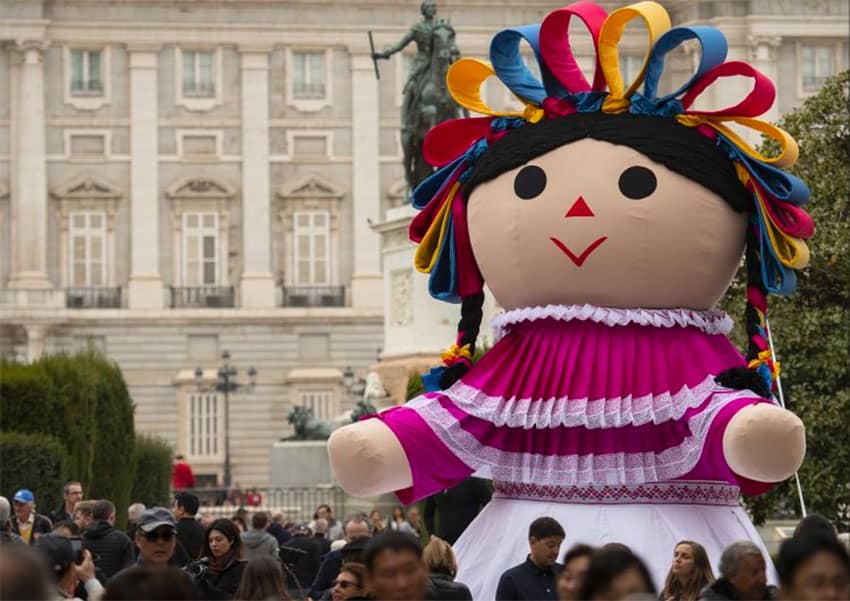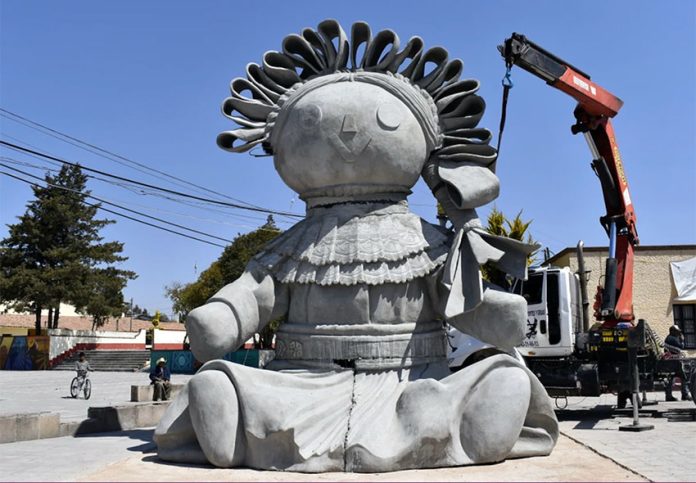A 6-meter-high concrete statue in the likeness of the famous “María” doll has been installed in the main square of a small town in Querétaro to pay homage to the artisanal “icon.”
Santiago Mexquititlán, an Otomí town in the municipality of Amealco, is home to the imposing artwork, which will soon be painted in the typical bright colors of a traditional María, or Lele (baby in Otomí).
The town is known as the “cradle” of the doll, although its origins can actually be traced back to Mexico City.
The doll is, however, strongly tied to the Otomí people of Amealco, where a majority of the municipality’s working age population are employed in more than 500 workshops where Marías are made.
Amealco Mayor Rosendo Anaya Aguilar told the newspaper El Universal that the installation of the statue – part of a 15-million-peso (US $735,000) state and municipal government project to upgrade the town square – provides recognition of the importance of the María doll to the municipality.
“For us, Lele has been a historical icon,” he said, adding that the new statue also pays tribute to the municipality’s craftswomen.
Anaya said the statue was made over a period of months in Mexico City but didn’t reveal the name of the sculptor.
As part of the modernization project, a section of the square has been repaved and a rainwater drainage system and garden areas have been added, the mayor said.
“The square will be very beautiful. … The final touch we gave it was to bring this enormous doll that’s six meters high. It’s almost the same size as the one that was traveling around several cities of the world,” Anaya said, referring to a huge María doll that was taken on a world tour in 2019 to promote Querétaro.
The mayor said the installation of the statue will help to attract more visitors to Santiago Mexquititlán, located about 100 kilometers south of Querétaro city.

“[Tourism] is an activity that we’ve bet on and with this we’re diversifying our offering. … We’re not only worried about bringing visitors to the municipal seat [a “magical town” also called Amealco], … we’re adding value to Santiago Mexquititlán and its artisans,” he said.
Source: El Universal (sp)
